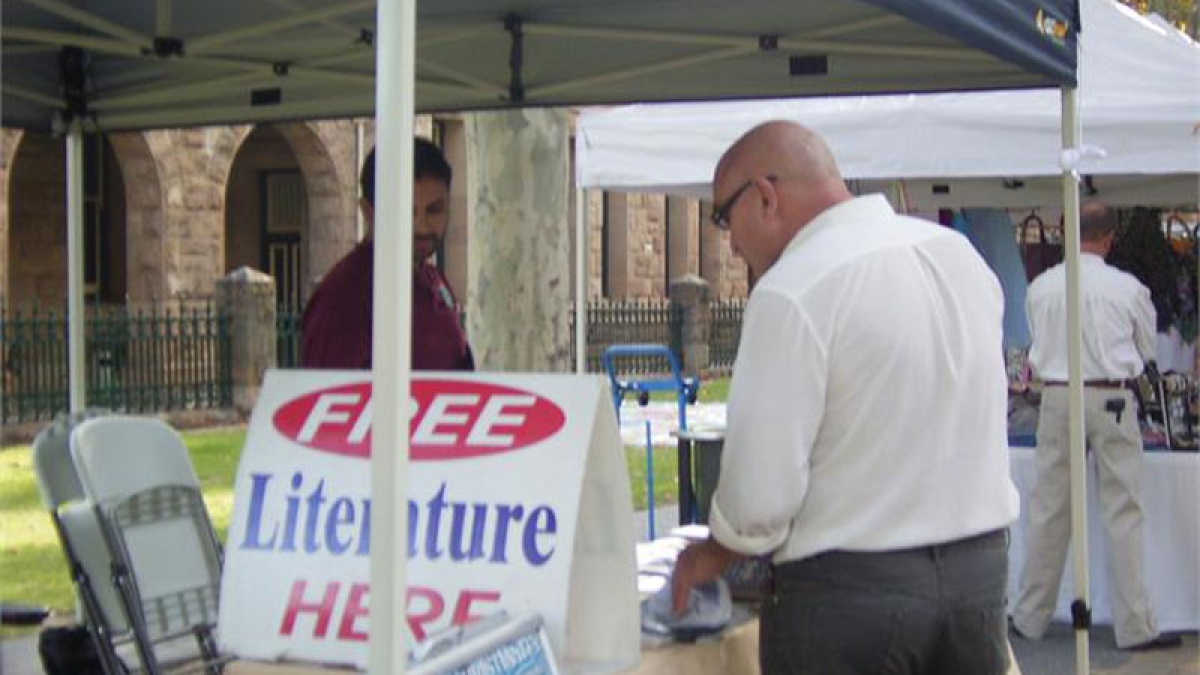Five steps for effective dawah

I. Ways of Relating to People
A. Be attentive and show concern. When shaking hands.
The Prophet (pbuh) never released his hand first, and never turned his face away from others until they did.
Be consistently considerate
Inquire about the absent
Visit the sick
Share in others' interests.
Exchange gifts
Listen to and look at the speaker
B. Address people by the names they like.
One day the prophet asked a man about his name, and he replied that it was Abdulhajjar (slave of stone). The prophet said: "No, you're Abdullah" (the slave of Allah).
II. Requirements for Effective Da'wah
A. Don't blame the people for their mistakes or be critical.
Many people are hypersensitive to criticism.
Some people become defensive when blamed. When Musa went to Pharoah, Allah said, "but speak to him mildly........perchance he may take warning or fear (Allah)".
B. Don't embarrass by correcting someone in front of others.
The Prophet (pbuh) used to use plurality when correcting a particular person in front of a group. For example, he would ask the group, "what do you think about those who do such-and-such a bad thing?".
C. Satisfy the people's halal needs.
Help those in need
Don't wait to assist the needy until they ask you
The prophet (pbuh) always helped the needy
The Prophet (pbuh) said, "Whosoever removes a worldly grief from a believer, Allah will remove from him one of the grieves of the Day of Judgment. Whoever alleviates [the lot of] a needy person, Allah will alleviate [his lot] in this world and the next.
D. Always be fair, just, and honest.
E. Give others sincere respect and heighten their self-esteem.
Remember, if the respect you show others is not genuine you will be showing hypocrisy, rather than respect.
One day a mushrik came to the prophet (pbuh) who was sitting with Abu Bakr on his right. The Prophet had Abu Bakr move to the left, and had the mushrik sit on his right, a position of honor.
Two brothers came to speak to the Prophet (pbuh) when the younger of them spoke first, the Prophet interrupted him and asked the older to start.
F. Don't be angry or retaliate for injury to yourself, but be angry or retaliate only for wrongdoing in the view of Allah.
III. Techniques for Growing Closer to Others
A. Attempt to understand deeply those you deal with
Find out their background (cultural, educational, social, etc) because that helps in finding access to their minds and hearts.
Attempt to know everyone equally well. Favoritism creates mistrust and hurt feelings.
B. Be simple, moderate, and respectful.
C. Do not insulate yourself from the bad people. They need you more than the others.
D. Be tactful
Avoid personal questions and embarrassing comments
Address the person according to his level of understanding
E. Be cheerful and enthusiastic
Al-Harith, a companion said, I have never seen anyone who smiled most of the time as the Prophet (pbuh) did.
F. Present a pleasant appearance
Be clean and neat
Observe decency in dress
Wear clothing that is harmonious to the total outfit
The prophet (pbuh) saw someone with uncombed hair and asked, "Didn't you find something with which to comb it?"
Never eat raw onion or garlic when going to the masjid or to meet with people.
IV. Obstacles to Da'wah
A. Don't be afraid of temptation.
Some people fear contact with non-Muslims for fear of succumbing to their bad influence. The remedy for this is to strengthen one's faith.
B. Don't be shy.
Some people lack the courage to mix with others and socialize.
The remedy for this is practice.
C. Fear of one's inability to express oneself and lack of confidence in one's capabilities for logical analysis and persuasion. The remedy for this is practice.
V. The field for Da'wah: school, neighborhood, workplace and family.
Source: MSA Dawah Workshop - Khadija Haffajee

















